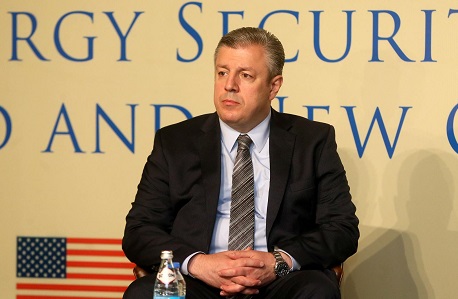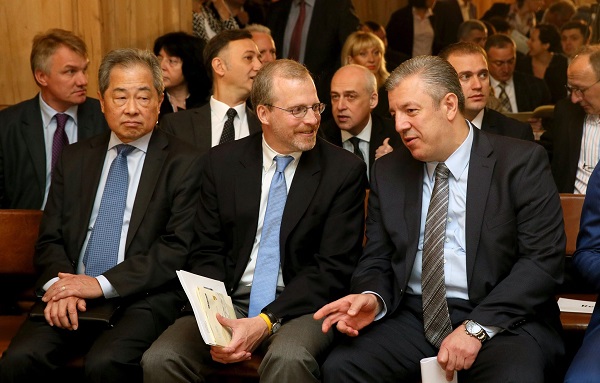PM Kvirikashvili: “Georgia is a trusted, reliable energy transit country”

Experts, scientists and policy makers are gathered in Georgia’s capital Tbilisi and attending an international conference dedicated to energy; discussing all things from sustainability to the challenges the energy industry faced.
The conference, International Energy Forum: Energy Security - Old and New Geopolitical Paradigm, opened early this morning and focused on the rapidly changing global energy environment, the pressure of globalisation and the existing trends in the energy field.
Georgia’s Prime Minister Giorgi Kvirikashvili addressed participants and spoke about Georgia’s energy security, the current and planned energy projects, Georgia's role as a transit country and about the country's strategic geographical location. He also mentioned the investment opportunities and the importance of the New Silk Road and Economic Belt project, connecting East and West.
Recently we celebrated the 20th anniversary of the first transit project, the Baku-Supsa pipeline. The pipeline turned out to be the first project that put Georgia on the energy map,” said Kvirikashvili.
Since then we have implemented several important projects including the Baku-Tbilisi-Ceyhan pipeline, the South Caucasus gas pipeline and the Shah Deniz project, which guarantees supply of additional gas to the pipeline.
The overall volume of investments made in the energy sector amounts to $45 billion, of which $2 billion was invested directly in Georgia,” Kvirikashvili added.
Discussing rapidly changing global #energy environment w/ experts,scientists&policy makers #InternationalEnergyForumpic.twitter.com/ekZXUElKCL
— Giorgi Kvirikashvili (@KvirikashviliGi) June 9, 2016
In his speech the PM stressed the need to intensify cooperation with Azerbaijan. According to him, in terms of energy supply, Azerbaijan was the "number one strategic partner of Georgia”.
Kvirikashvili also highlighted the importance of the United States (US) support for ensuring energy security.
The US is an important strategic partner of Georgia. This is a partnership that has been in place for 25 years, since Georgia regained independence. Therefore implementation of strategic projects, such as the Baku-Supsa, Baku-Tbilisi-Ceyhan oil pipeline and the Baku-Tbilisi-Erzurum gas pipeline became possible largely due to the US support,” Kvirikashvili said.
The head of the Georgian Government stressed his country had demonstrated that it was a stable partner for the West, and it represented a decent base for the expansion of cooperation between countries of the East with the West.
After his speech Kvirikashvili answered questions, one of which came from a representative of opposition United National Movement (UNM). The person asked about the country’s current energy strategy and said the number of investments in Georgia’s energy sector had decreased and there were attempts from the Government to make Georgia dependent on Russian gas.
In response Kvirikashvili said Georgia was currently undertaking several major energy projects, among them were several that had been suspended by the UNM government when it was in power from 2003-2012.

PM Kvirikashvili highlighted the importance of the United States (US) support for ensuring energy security. Photo by Prime Minister's webpage.
Kvirikashvili stressed it took billions of dollars and lengthy studies and negotiations to carry out a major energy project, and cited the Nenska Hydro Power Plant project as an example of this.
He said the current Government put maximum efforts to attract significant energy investments and welcome back the investors who left the country under the previous government.
When it came to negotiating with Russia’s energy giant Gazprom, Kvirikashvili said Georgia’s gas demands had increased 40 percent and the country was searching for ways to fill this deficit from new sources.
Finally we settled this problem through an agreement with Azerbaijan’s SOCAR. Now Georgia gets less than 10 percent of its energy resources from Russia and our energy dependence on Russia is very low,” he said.
He would not elaborate any further on the Georgian Government’s cooperation with Gazprom, particularly because, as he said, the Russian investments were provided under the previous state leadership.
The one-day conference was organised by the Economic Policy Research Centre (EPRC), the Konrad Adenauer Foundation (KAS) and the US Embassy to Georgia.
 Tweet
Tweet  Share
Share